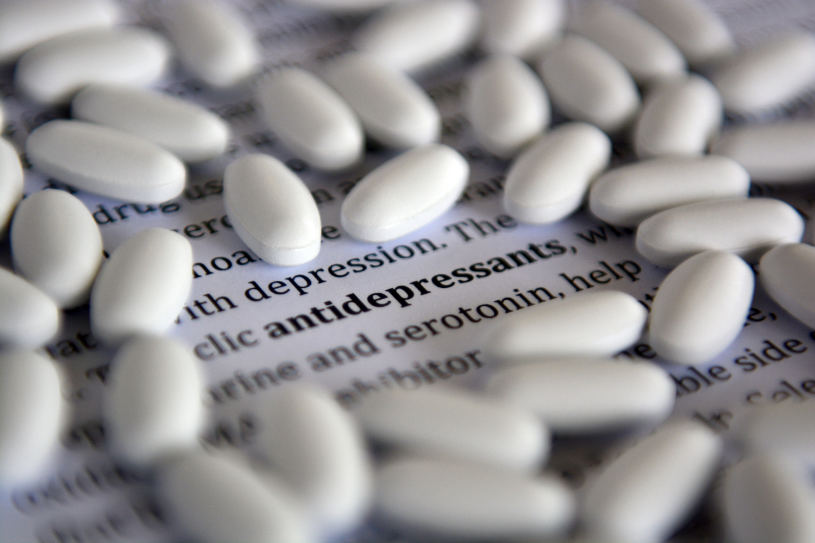The most commonly used prescription medications are antidepressant drugs. Aside from alleviating depression, these drugs are used in managing anxiety disorders.
Table Of Contents:
In 2019, around 240 million prescriptions of antidepressant drugs were issued in the United States, and the most common antidepressant drug prescribed is Sertraline or Zoloft, with a prevalence rate of 15.4%. Looking at these statistics, it is necessary to learn what antidepressants do to the body and antidepressants mechanism of action as most people only understand that these drugs treat depression. There tends to be a knowledge gap regarding how antidepressant medications work.
In this article information about what do antidepressants do, antidepressant drug effects on the brain, how do antidepressants work for anxiety, and what to do when these drugs do not show their effects will be provided.
More About Antidepressants:
What Do Antidepressants Do?
To answer this question, it is first essential to know that there are many types of antidepressant drugs, and although all of them act on the brain, each of these types comes with different mechanisms of action. Based on a clinical review of pharmacologists from New York, antidepressant drugs work by increasing the levels of so-called feel-good chemicals in the brain, but the question is, how do they do this activity?
The antidepressant drug class selective serotonin reuptake inhibitor (SSRI) affects the levels of serotonin in the brain. Meanwhile, the antidepressant drug classes serotonin and norepinephrine reuptake inhibitor (SNRI) and tricyclic antidepressants (TCAs) affect both the neurotransmitters serotonin and norepinephrine. Aside from these, there are also monoamine oxidase inhibitors (MAOIs) and atypical antidepressants. These two work by increasing the levels of norepinephrine, serotonin, and dopamine.
How Long Does It Take For Antidepressants To Work?
When patients start taking depression drugs, they expect antidepressants mechanism of action to work quickly. This is because most medications on the market show their effects instantly or within just a few days. Antidepressant drugs are different. So, how long does it take for antidepressants to work? Generally, the average onset of action of antidepressant drugs is 13 days. But, this onset of action also differs depending on the antidepressant drug class. For example, selective serotonin reuptake inhibitors are slow-acting.
Their Onset of Effects Is Between 2-3 Weeks. Some of the SSRI Drugs Include the Following:
- Citalopram
- Escitalopram
- Fluoxetine
- Fluvoxamine
- Paroxetine
- Sertraline
- Vilazodone
In another study of medical doctors from California, this 2-3 weeks onset of action also goes the same for the monoamine oxidase inhibitors. Meaning monoamine oxidase inhibitors are also slow-acting.
Some of the Monoamine Oxidase Inhibitors Include:
- Isocarboxazid
- Phenelzine
- Selegiline
- Tranylcypromine
On the other hand, TCA antidepressants mechanism of action are fast-acting. Based on the study of researchers from London, the early tricyclic antidepressants show their effects within the first few days of treatment.
Some of These Drugs Include:
- Amitriptyline
- Amoxapine
- Desipramine
- Doxepin
- Imipramine
- Nortriptyline
- Protriptyline
- Trimipramine
Lastly, for SNRIs like Venlafaxine, these drugs work in as fast as 4 days. Meaning these drugs are also fast-acting. Aside from Venlafaxine, other atypical antidepressant drugs include the following:
- Desvenlafaxine
- Duloxetine
- Levomilnacipran
- Venlafaxine
Every patient under an antidepressant treatment must know how long it will take for the drugs to work. In many cases, the side effects of SSRIs and other depression medications cause patients to stop using before ever feeling the authentic effects.

Why Do Antidepressants Take So Long To Work?
Generally, it takes days to weeks for antidepressant medications to alter brain chemistry noticeably and sustainably. Given that this is what antidepressant drugs do, it means that they do not work immediately. In a clinical trial of psychiatrists, if not 13 days, the average onset of action of antidepressant drugs could be up to 20 days.
Shortly after the first dose is taken, it will act on the brain and increase the presence of feel-good chemicals. This makes people wonder why, if there is an immediate physical response to them, antidepressant drugs do not work instantly. In essence, this is a misunderstanding of the drugs. Increasing the presence of feel-good chemicals is just the start and is not powerful enough on its own to truly address clinical depression. Over weeks, as the level of the chemicals remain high with the antidepressants working as they are designed, the user steadily becomes more and more able to lean towards positive emotional processing. This provides a foundation for cognitive and psychological reconsolidation, which is experienced as a lifting of depression.
With this said, some of these medications work faster than others. For example, the names of some SNRIs are listed as being faster acting, given their mechanism of action can be noticed in less than two weeks. However, most will take more than a month for the user to experience noticeable results.
What Do Antidepressants Do To The Brain?
How do antidepressants work on the brain? There are neurotransmitters in the brain, and it is already known that antidepressant drugs increase the levels of these neurotransmitters. Different types of antidepressant drugs target different receptors in the brain. For example, the SSRIs target serotonin receptors while the TCAs target the cholinergic, histaminic, and adrenergic receptors. But, this is not what is only being done to the brain. According to a clinical review, antidepressant drugs change the structure and the function of the brain.
Do Antidepressants Permanently Alter Brain Chemistry?
Some patients may wonder, do antidepressants permanently alter brain chemistry? Here, the answer gets a bit fuzzy. The truth is that while these medications are widely studied, it is not fully understood how antidepressant drugs work. What is known about the mechanism of action is fairly limited, which makes it hard to attribute lasting effects to the medications alone.
Nonetheless, long-term use of antidepressant drugs that increase dopamine levels has been found to cause alterations in the brain, even after use has stopped. Consistent with the report from the University of New South Wales Sydney, the brain structure of both depressed and non-depressed patients changes as long as they take antidepressant medications. One of the changes includes the reduction of the size of the hippocampus. In another study of pharmacologists from Tokyo, it was found out that after the long-term use of the antidepressant Citalopram, the body struggled to produce the dopamine the brain needs to function, resulting in a more profound experience of depression.
How do antidepressants work when used with other drugs? There is also a link between antidepressant drugs and estrogen. Both the medications and the estrogen hormone are known to increase certain feel-good chemicals in the brain. It is theorized, though not definitively proven, that as antidepressant drugs work, the body sees less need to produce estrogen. As a result, antidepressant drugs and estrogen levels dropping can result in long-term adverse hormonal effects.
Does Your Brain Go Back to Normal after Antidepressants?
It is common to experience brain zaps after taking antidepressant drugs. These are electrical shocks in the brain that occurs when a patient starts to decrease the drug dose or stop taking the drug. These zaps are signals that the brain is resetting itself after the use of antidepressant drugs.
So, for those who might be asking, does your brain go back to normal after antidepressants? The answer would be there is a chance for the brain to go back to normal after antidepressant drugs use. But, always remember that when stopping the use of these drugs, dose tapering, which is given by a medical doctor, should be followed. This technique is used to avoid antidepressant withdrawal and other health complications.
Sometimes, patients end up trying many types of antidepressant drugs before finding one that seems to treat their condition. This does not mean that it is safe for the health to self-medicate. Always keep in mind that a medical doctor is the only one who can choose the right type of antidepressant for the patient.
What Do Antidepressants Do For Anxiety?
Even those who are not under the treatment of these drugs may ask, do antidepressants work for anxiety? The answer would be yes. Antidepressant medications are often used in the treatment of anxiety disorders such as obsessive-compulsive disorder (OCD), generalized anxiety disorder, panic disorder, social anxiety disorder, and post-traumatic stress disorder (PTSD). However, not all types of depression medications work for all of these anxiety disorders.
Based on a clinical review published in the Dialogues in Clinical Neuroscience, all of the selective serotonin reuptake inhibitors (SSRIs) can be used in treating the different spectrum of anxiety disorders. Also in the same study, the TCAs Imipramine and Clomipramine can only be used for generalized anxiety disorder, panic disorder, and PTSD. Meanwhile, SNRI drugs like Venlafaxine can only be used in treating generalized anxiety disorder and panic disorder.
Because not all medications are designed to treat anxiety, there is a concern that side effects such as antidepressants weight changes are more likely to emerge from treatment. Therefore, users should exercise caution when prescribed antidepressant drugs for anxiety. This is also a call for patients to not self-medicate in case the feeling of anxiety arises. Always seek clinical information from a medical doctor to avoid dangerous health events.

Why Antidepressants Don’t Work Sometimes
While they are sometimes presented as a miracle drug, for many who are under the treatment of these drugs, antidepressant drugs do not work as expected. As it happens, research indicates that they are not nearly as effective as many have been led to believe. Studies have found that roughly 40 percent of people with depression will see improvement when given a placebo—no medicine at all. When given an antidepressant, 60 percent of people see an improvement—only 20 percent more than those not given any medication at all. Why antidepressants do not work significantly better than a mere placebo is not fully understood. However, for those in that 20 percent who do see effects from the medication, it still has its benefits.
Aside from this concept, there are also some factors why antidepressants do not work. The most common one is antidepressant tolerance. In a study, 26 out of 77 patients who are under the treatment of Fluoxetine experienced drug tolerance. Aside from this factor, alcohol use can also be a culprit for why antidepressants do not work. Drinking on antidepressants counteracts the effects of the drug, making the symptoms harder to treat. So, for those with the question do antidepressants work in their mind, the answer would be antidepressants work effectively. Just make sure that the patients are compliant with the instruction of a medical doctor and are not self-medicating.
What To Do When Antidepressants Don’t Work?
When antidepressants don’t work, it is possible that the user simply needs to be switched to other drugs, as it may be that the current ones are not for them. For those who find them effective, oftentimes, it is only for short-term treatment. Once they are not as effective, it may be better to look into natural alternatives to antidepressants. If someone is prescribed depression drugs, and they do not work, they will need to end the use of the medications safely. This should never be done alone or cold turkey. When someone chooses to stop antidepressants, they are at high risk of experiencing significant side effects as well as powerful feelings of depression, and even suicidal thoughts.
By consulting with a drug rehabilitation facility or experienced doctor, the user will be able to determine a good tapering schedule and safely get off antidepressants. Drug rehabilitation centers can address all aspects of ending these drug use by effective treatment to ensure long-standing results.
Always Consult with Your Doctor
Indeed, all antidepressants act in the brain. But since there are different types of antidepressant drugs, there are also different mechanisms of action. These MOA generally differ on the neurotransmitters the drugs target. Some target serotonin alone, while others target norepinephrine and dopamine as well. With regards to the onset of action of antidepressant drugs, this will also depend on the drug type. There are fast-acting antidepressants, and there are slow-acting ones.
Because some antidepressant drugs take time to work, some patients think that the medications are not effective. Thus, they abruptly stop the use of medication, leading to withdrawal, or they increase the dose and this is dangerous because it could lead to antidepressants overdose, dependence, tolerance, and even antidepressant addiction. In case these occur, seeking resources such as rehab centers would be of great help. There are different professional addiction specialists at these centers that can give patients information about how to wean off these medications safely. Aside from this, patients can also choose between in-patient rehab programs and outpatient rehab programs. Any of these, together with a relapse prevention plan, would be an effective way to recover from the dangerous use of antidepressants.
Hope Without Commitment
Find the best treatment options. Call our free and confidential helpline
Most private insurances accepted
Page Sources
- Dusi, N., Barlati, S., Vita, A., & Brambilla, P. (2015). Brain structural effects of antidepressant treatment in major depression. Current neuropharmacology, 13(4), 458-465.
- Gerhard, D. M., & Duman, R. S. (2018). Rapid-acting antidepressants: mechanistic insights and future directions. Current behavioral neuroscience reports, 5(1), 36-47.
- Institute for Quality and Efficiency in Health Care. (2015). Depression: How effective are antidepressants.
- Kane, S. P. P. (2019a). Antidepressants - Drug Usage Statistics, ClinCalc DrugStats Database. ClinCalc. https://clincalc.com/DrugStats/TC/Antidepressants
- Katie Spencer, news reporter. (2019, April 9). Long-term use of antidepressants could cause permanent damage, doctors warn. Sky News. https://news.sky.com/story/long-term-use-of-antidepressants-could-cause-permanent-damage-doctors-warn-11688430
- Kaneko, F., Kawahara, Y., Kishikawa, Y., Hanada, Y., Yamada, M., Kakuma, T., ... & Nishi, A. (2016). Long-term citalopram treatment alters the stress responses of the cortical dopamine and noradrenaline systems: the role of cortical 5-HT1A receptors. International Journal of Neuropsychopharmacology, 19(8).
- Katz, M. M., Tekell, J. L., Bowden, C. L., Brannan, S., Houston, J. P., Berman, N., & Frazer, A. (2004). Onset and early behavioral effects of pharmacologically different antidepressants and placebo in depression. Neuropsychopharmacology, 29(3), 566-579.
- Laban, T. S., & Saadabadi, A. (2021). Monoamine oxidase inhibitors (MAOI). StatPearls.
- Machado-Vieira, R., Baumann, J., Wheeler-Castillo, C., Latov, D., Henter, I. D., Salvadore, G., & Zarate, C. A. (2010). The timing of antidepressant effects: a comparison of diverse pharmacological and somatic treatments. Pharmaceuticals, 3(1), 19-41.
- Pavlidi, P., Kokras, N., & Dalla, C. (2021). Antidepressants’ effects on testosterone and estrogens: What do we know?. European Journal of Pharmacology, 899, 173998.
- Targum, S. D. (2014). Identification and treatment of antidepressant tachyphylaxis. Innovations in clinical neuroscience, 11(3-4), 24.
- Taylor, C., Fricker, A. D., Devi, L. A., & Gomes, I. (2005). Mechanisms of action of antidepressants: from neurotransmitter systems to signaling pathways. Cellular signalling, 17(5), 549-557.
- Tylee, A., & Walters, P. (2007). Onset of action of antidepressants. Bmj, 334(7600), 911-912.

 Authored by
Authored by  Reviewed by
Reviewed by 


